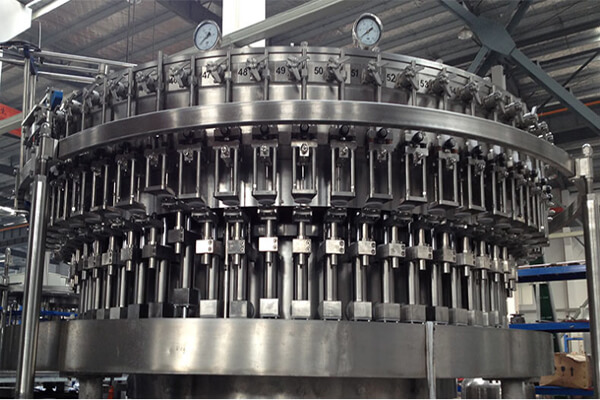-
+86-13584422722
+86-13584422722
After 13 years of repeated downturn in the carbonated beverage industry, it has become crucial that Industry-based innovation and technological apt blueprints be integrated into its production and even marketing.
In terms of market acceptability and appeal to customers, carbonated soft drinks are no doubts an in-demand and well sought for products in the US beverage market. This is corroborated by the findings of a Market research consultancy Mintel which pointed out in a report in April 2017 entitled "Carbonated Soft Drinks - USA" that the market acceptability rate of such products reached about 90%.

However, with the current trend in the sales, some analysts believe that there is an urgent need for technologically driven innovative ideas. These innovative ideas are to play roles of meeting the needs of the customers in terms of varied tastes, health improved products, and other beneficial bites. This would, of course, lead to future sales growth.
The timely need for carbonated soft drink market innovation is heavily supported by the downturn in the field of sales for many years.
Catherine Krol, another research analyst at Euromonitor International, aptly pointed out that the global market for carbonated soft drinks faces many challenges. In the April issues of the beverage industry, she said, “The total sale of carbonated beverages in 2017 has stagnated, indicating that the overall perception and acceptability of carbonated soft drinks is facing some damages at the moment.” “Although there are some positive developments in ginger soda and tonic water, in the whole, there is an overwhelming decline of the carbonated soft drink market."
According to Krol the carbonated soft drink market hit a record low in 2013 and has since continued in that path owing to the introduction of non-cola-based carbonated beverages – which first announced negative growth rates in 2017” “No doubts Healthy health campaigns for zero-calories carbonated soft drinks have contributed to the sharp decline of the market of full-calorie carbonated beverages."
In response to this negative trend in the carbonated beverage industry. The Coca-Cola Company, based in Atlanta, and PepsiCo Co., Ltd., based in Purchase, New York, have consistently explored this downturn in sales of carbonated soft drinks through the discovery of zero-calorie sweeteners that are both sweet and beneficial to consumers such as aspartame.
In order to reverse the market downturn and remain highly competitive in the market, foreign reports have it that Coca-Cola, which has not been involved in alcoholic beverages for 125 years, had decided to enter the alcoholic beverage business and chose Japan as the first step in this field (Chu-Hi sparkling wine market).
According to public information, Chu-Hi is a canned beverage with an alcohol content of 3%-8% with a global growth rate of between 5% and 25%, with great prospects since 2013.
Recently, a beverage giant announced its 2017 transcript. The financial report shows that both net income and net profit have declined. In fact, this is not the first time the beverage industry has had a bad situation. How can we explain this current trend in the sales of carbonated beverages? Statistics and facts have it that people are more concern about their health and as such are paying more attention to healthy eating as they switch to healthy drinks and gradually “abandon” carbonated drinks.